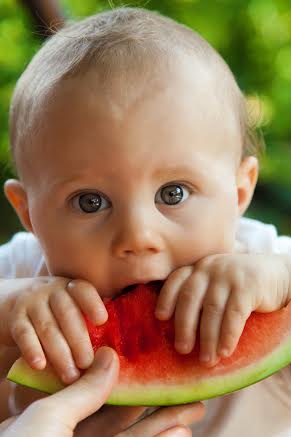
by Dawn Dodge
Here’s an all-too-common scenario: it’s a month or so after your perfect new baby is born, and you’ve spent exhausting hours overcoming several breastfeeding challenges because you want your son or daughter to have the best possible start in life…you’re starting to get the hang of it…only to be faced more and more often with a cranky, crying, or downright inconsolable infant.
 Sometimes, nothing works, and you just have to hold the love of your life while he cries. The worst part is, you have absolutely no idea why he is suffering. Maybe you even took him to the pediatrician, only to hear the dreaded word: colic. More often than not, you would then have been offered very little advice on how to treat your child’s colic.
Sometimes, nothing works, and you just have to hold the love of your life while he cries. The worst part is, you have absolutely no idea why he is suffering. Maybe you even took him to the pediatrician, only to hear the dreaded word: colic. More often than not, you would then have been offered very little advice on how to treat your child’s colic.
At the most, your doctor may tell you to stop eating dairy products, prescribe medication for infant reflux, or even suggest that you stop breastfeeding and switch to a hypoallergenic formula.
I am happy to to tell you that in so many cases, colic can be treated by simply changing what you eat. Dairy, grains, nuts, peanuts, eggs, soy, and a group of plants called nightshades are the top 7 food allergens for humans. However, people can be allergic to literally any food, and you may be surprised at what symptoms can be attributed to issues with food. More often than not, colic is how an infant is expressing their sensitivity or allergy to a food you are eating.
Both of my children struggle with food sensitivities. When we took dairy and wheat out of my daughter’s diet, and also my diet while she was still breastfeeding, she became a much happier child. I am currently still breastfeeding my 5 month old son, and as soon as he showed the all too familiar signs of impending colic, I did not hesitate to eliminate all of the most allergenic foods from my eating.
Through a process of trial and error, I have found that as long as I refrain from eating grains, dairy, nuts, chocolate, and nightshades, he is a charming and smiley baby that rarely cries and has excellent sleep habits. If I slip up (no one’s perfect!) he becomes fussy within hours of eating the offending food.
If you are struggling with a colicy or even just fussy baby, here is what you need to do: for one week (just one week!) do not eat grains, nuts, dairy, eggs, legumes (including peanuts and soy), chocolate, tomatoes, potatoes, and peppers.
I know it sounds like a tall order, but this is a temporary experiment that most likely is going to bring relief to your baby in days. What can you eat? As much as you want of fruits, fresh meats, vegetables other than those listed above, 100% fruit juices, honey…these are just a few ideas.
It is important to note that no dairy (for example) really means no dairy – including cream in your coffee. No grain really means no grain – even a piece of candy containing rice starch. Believe it or not these small quantities can affect a sensitive breastfeeding infant.
Again, this temporary elimination diet probably is pretty intimidating. However, most likely you will be able to add some of these foods back in soon. In the meantime imagine the relief of your baby not feeling miserable! A happy baby makes all the effort so worth it. An interesting bonus to this strategy is that you may inadvertently treat ailments that you yourself were experiencing due to similar food sensitivities. When I cut out dairy for my first child, it was a huge wake up call to how awful it had been making me feel for years! Gone were my random headaches, afternoon lethargy, congestion, and teeth grinding.
My suggestion is to do the total elimination described above for one week, and if you see improvement in your baby’s health and behavior, add in one type of food at a time no sooner than three days apart, noting any returning symptoms. As soon as the fussiness returns (or other notable reactions like a rash, green stool, or congestion), stop eating that food you most recently began eating again. This is how you will map out what foods are creating problems for your baby. In six months, you can once again try to reintroduce problem foods to see if his immune and digestive systems have matured.
There are of course unusual cases of allergies to very surprising foods – even ones that are supposedly hypoallergenic such as turkey. If you aren’t seeing the improvement you want, try to summon patience and keep careful track of all foods you are eating to discover the culprit. In most cases thoroughly removing those seven common allergens very likely will result in a huge improvement: without having to run to the pharmacy or quit breastfeeding. I know first hand that this process can also send you down an unexpected path of health and healing for your entire family. Best wishes!
(Dawn is a mother to two wonderful food-sensitive children in the Rocky Mountain West. In addition to parenting, gardening, reading stories, and keeping their two cats happy, she writes about the challenges and joys of eating grain-free on her blog www.grainfreechild.com. Visit for recipes and more information on how to improve the health of your family through diet.)



